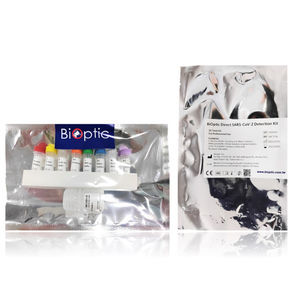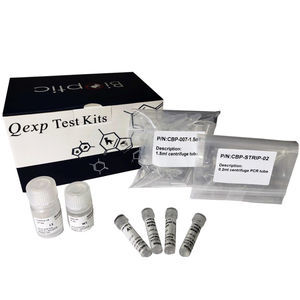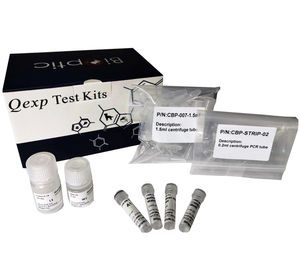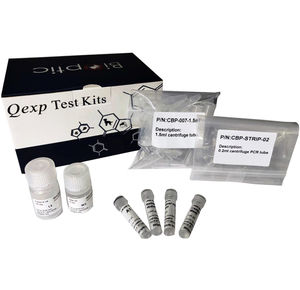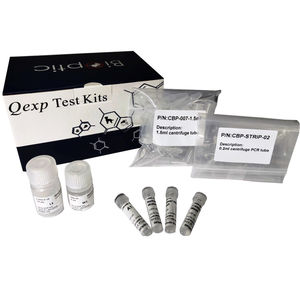
- Laboratory
- Laboratory medicine
- Solution reagent
- BiOptic. Inc.
Solution reagent kit Qexp-MDx APOEfor genotypingbuccal Swabs

Add to favorites
Compare this product
Characteristics
- Type
- solution
- Applications
- for genotyping
- Tested parameter
- buccal Swabs
Description
Apolipoprotein E (APOE) is involved in blood lipids metabolism and is related to diseases such as Alzheimer's disease, hyperlipidemia, etc. Due to DNA sequence-specific single nucleotide polymorphism (SNP) mutation, there are three types of APOE: ε2 (Cys112, Cys158), ε3 (Cys112, Arg158), and ε4 (Arg112, Arg158). one of each pair inherited from each parent, so APOE dual genotype combinations have six types: ε2/ε2, ε2/ε3, ε2/ε4, ε3/ε3, ε3/ε4, ε4/ε4.
Apolipoprotein E (APOE) is involved in blood lipids metabolism and is related to diseases such as Alzheimer's disease, hyperlipidemia, etc. Due to DNA sequence-specific single nucleotide polymorphism (SNP) mutation, there are three types of APOE: ε2 (Cys112, Cys158), ε3 (Cys112, Arg158), and ε4 (Arg112, Arg158). one of each pair inherited from each parent, so APOE dual genotype combinations have six types: ε2/ε2, ε2/ε3, ε2/ε4, ε3/ε3, ε3/ε4, ε4/ε4.
The Relationship with Alzheimer's disease
According to research, people with an ε4 have a risk of Alzheimer’s disease in their later years will be increased about 3-5 times, 5-15 times with the genotype ε4/ε4. The genotype of ε2 is uncommon, it might have the effect of antagonizing Alzheimer’s disease. APOE ε3 is the most common allele. Researchers believe that it plays a mild role in the disease and neither reduces nor increases the risk of Alzheimer’s disease.
VIDEO
Catalogs
No catalogs are available for this product.
See all of BiOptic. Inc.‘s catalogsRelated Searches
- Assay kit
- Solution reagent kit
- Molecular biology reagent kit
- Infectious disease detection kit
- Research reagent kit
- Protein reagent kit
- Diagnostic reagent kit
- Laboratory reagent kit
- Enzyme reagent kit
- Dye reagent
- PCR reagent kit
- Virus reagent kit
- Animal assay kit
- Nucleic acid reagent kit
- Tissue detection kit
- Feces test kit
- DNA polymerase reagent kit
- Gene reagent kit
- Taq DNA polymerase reagent kit
- Parasite test kit
*Prices are pre-tax. They exclude delivery charges and customs duties and do not include additional charges for installation or activation options. Prices are indicative only and may vary by country, with changes to the cost of raw materials and exchange rates.



